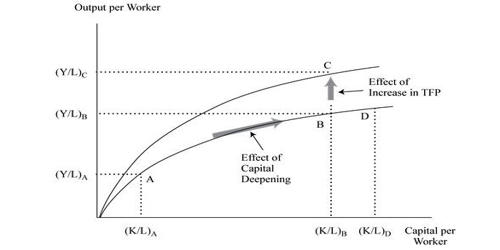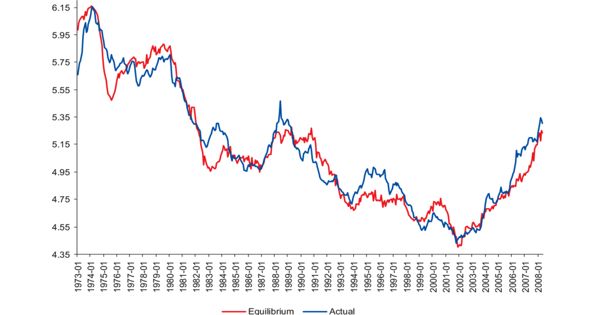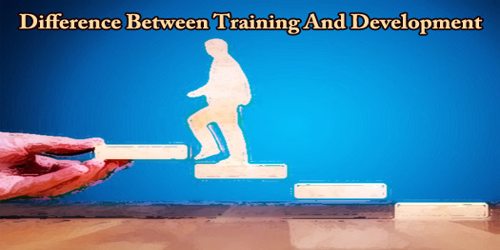Capital deepening refers to an increase in the proportion of the capital stock to the number of labor hours worked. It is a situation where the capital per worker is increasing in the economy. It is a development process involving a transition from traditional agriculture, which is labor-intensive, to more capital-intensive modern manufacturing. This is also referred to as an increase in capital intensity. Movements in this ratio are closely tied to movements in labor productivity, all other things held equal. It is an important component of productivity, and historically low growth of capital per hour is likely contributing to the current low productivity state.
Capital deepening is often measured by the rate of change in capital stock per labor hour. Overall, the economy will expand, and productivity per worker will increase. Typically, capital deepening increases during the recovery phase of the business cycle as a business investment pick up. However, according to some economic models, such as the Solow model, economic expansion will not continue indefinitely through capital deepening alone. However, during the recovery phase of the recession, investment did not increase sufficiently to boost the capital-to-labor ratio. This is partly due to diminishing returns and wears & tear (depreciation).
Investment is also required to increase the amount of capital available to each worker in the system and thus increase the ratio of capital to labor. Capital deepening involves greater investment to make use of existing technology and increase the amount of capital available. In other economic models, for example, the AK model or some models in endogenous growth theory, capital deepening can lead to sustained economic growth even without technological progress. It attempts to increase output through better technology and higher output per worker, for example, a new technology that makes capital more productive. Traditionally, in development economics, capital deepening is seen as a necessary but not sufficient condition for the economic development of a country.
Capital widening is the situation where the stock of capital is increasing at the same rate as the labor force and the depreciation rate, thus the capital per worker ratio remains constant. It typically increases output through technological improvements (such as a faster copier) that enable higher output per worker. The economy will expand in terms of aggregate output, but productivity per worker will remain constant. In short, capital deepening improves the productivity of labor. It leads to an increase in the capital stock per worker employed and eventually higher productivity.
















